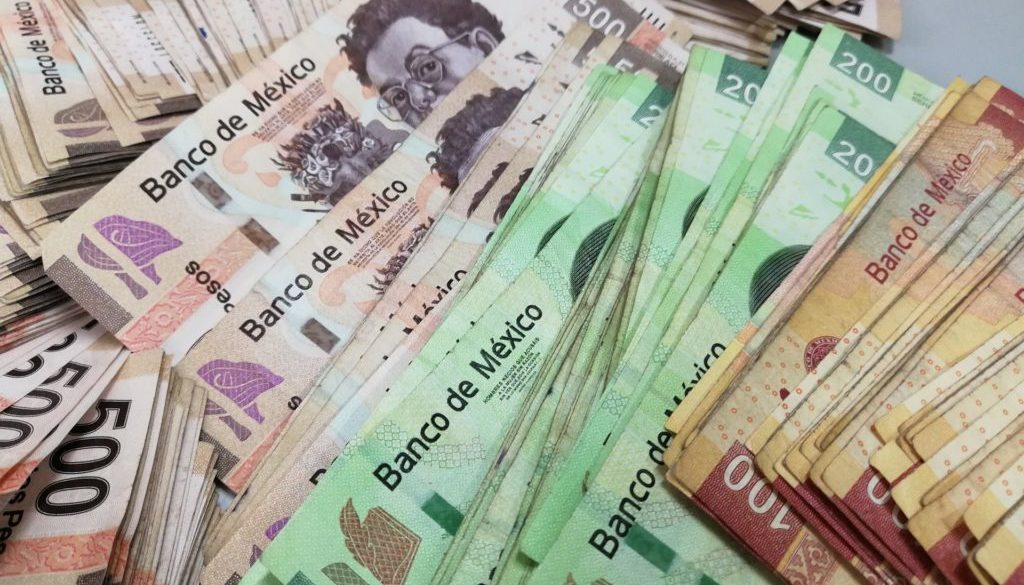Exports and US stimulus spending have a positive effect on the Mexican economy
The United States-Mexico-Canada Free Trade Agreement (USMCA) and the recently implemented US economic stimulus will have a positive effect on the Mexican economy, especially its automotive sector.
In a semi-desert valley in central Mexico, one of the world’s largest automotive suppliers is preparing to open a new plant to produce components for the North American market. Events such as this are underpinning the export business that has kept the country’s economy running.
Continental AG’s new factory in Aguascalientes should benefit from both the U.S.-Mexico-Canada Free Trade Agreement (USMCA) and US President Joe Biden’s trillion stimulus plans that have been designed to revive economic growth after the coronavirus pandemic.
The confidence expressed by executives of the German auto parts manufacturer in Mexico reflects growing optimism among analysts that the global recovery will have a positive effect on the Mexican economy and surpass expectations. This economic expansion is anticipated despite persistent weakness in the country’s domestic demand.
“We know that high volume production of automobiles will occur, and this is what we are preparing for,” asserted Ina Seterbakken, manager of the Continental AG plant that is still under construction.
Continental fully expects that its business will revive after delays that pandemic-related issues have caused, Seterbakken said. She added that the factory’s prospects of sales are positive given Mexico’s proximity to the United States, the world’s largest economy.
Latin America’s second-largest economy shares a nearly 3,200-kilometer border with its northern neighbor and has competed with China for the title of America’s largest trading partner in recent years, making it highly dependent on that country and its businesses.
The German company expects to increase its global sales in 2021 by 7% to 13% when compared to last year. This forecast is according to a guide presented in March. Despite this positive outlook, Continental will not reach the sales amounts that the company registered in 2019.
The new plant, which will employ about 1,000 people, joins a cluster of automotive factories located in central Mexico. These manufacturers positively affect the Mexican economy by focusing production on meeting the demand of their business partners in the USMCA.
Fiat Chrysler, Mazda, Mercedes-Benz, Nissan, and Volkswagen have manufacturing plants in the region.
“If (the USMCA) had not been implemented, the economy of the country would have been completely changed,” said Gustavo Puente, Secretary of Economics of San Luis Potosí. Continental recently announced another additional investment that will total 60 million euros in his state.
External dependence
Last year, Mexico’s economy suffered its worst decline since the 1930s, with a contraction in its Gross Domestic Product (GDP) of 8.5%. Strong external demand for Mexican exports, however, has helped the country from suffering further.
The country’s current president, Andrés Manuel López Obrador, has resisted an increase in government spending to support an economic recovery. He has argued that rather than positively affecting the Mexican as a whole, bailouts and deficit spending tend to put money in the pockets of the rich.
However, the nation has benefited from stimulus plans implemented in developed countries, mainly that of its northern neighbor. The United States absorbs about 80% of all exports of goods from Mexico.
Led by the automotive industry, manufacturing accounts for nearly one-fifth of the Mexican economy.
In the face of positive economic expectations north of the border, Mexico’s government is upgrading its growth forecast for 2021 to be between 5% and 5.5% of GDP. The country’s Treasury Secretary, Arturo Herrera, has acknowledged the “beneficial effects” on the Mexican domestic economy that the US stimulus plan will have for the foreseeable future.
Private sector analysts are doing the same: JP Morgan Chase recently raised its estimate for 2021, for the second time in the year, to 5.6%, from the 4% estimated at the end of last year.
“If it weren’t for the US government’s significant stimulus plans, Mexico would probably be growing by only a modest 2.5 percent or 3 percent,” said Gabriel Lozano, chief economist for Mexico at the US bank.
Commercial advantage and a positive effect on the Mexican economy
Mexico has thus far committed resources worth about 1.3% of its GDP to revive its economy. Government action will take the form of increased spending on social programs and small business loans, and banking requirement reforms. This information is according to International Monetary Fund (IMF). In contrast, in Latin America’s largest economy, Brazil, the figure is 6.2%.
However, according to the IMF, Mexico’s economy is expected to grow by 4.3% this year compared to Brazil’s 3.6%. The disparate character of both nations’ exposure to the United States could be one of the reasons for this difference.
According to data from the US Census Bureau, Mexico’s annual exports to the United States were about US $360 million before the pandemic. This amount represents about one-third of the Mexican GDP. Meanwhile, Brazil’s exports to the US amounted to less than 31 billion in 2019.
The difference between Latin America’s two largest economies is also reflected in financial markets: while the Mexican stock market gained 4.9% so far in 2021, the Brazilian stock exchange has lost 8.2%. Both of these figures are according to dollar measures.
But some analysts and entrepreneurs in Mexico have their doubts. They point out that overseas appetite for Mexican products contrasts with weak domestic demand. Additionally, fixed capital investment in the country plummeted by more than 18% last year. This decrease, however, will turn positive as the world recovers from the coronavirus pandemic.
Under this scenario, Mexico’s recovery will depend mainly on the government’s ability to encourage manufacturing investment, which could benefit from the widely perceived need to regionalize supply chains outside Asia under the USMCA.
Attracted by a lower-cost structure in Mexico, companies are cautiously seeing whether government measures to strengthen state control of the electricity market will affect energy-efficient sectors, such as automobile manufacturing.
“(The electricity sector) is crucial for the Mexican economy to grow steadily, but to do so, the state must guarantee the principles of free competition and legal certainty,” the American Chamber of Commerce (AmCham) said this past February.





